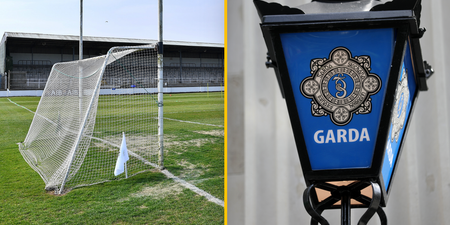Brought to you by Abhaile.
It’s every homeowner’s worst fear.
If you’re struggling with your mortgage payments, it might feel like the worst case scenario would be getting a letter to tell you that you’re due in court. For most homeowners, it can be the first time that they’ve ever had to attend court so it’s a daunting prospect.
This scary proposition is made even worse by the fear of losing your home. The reality is that there are lots of people in your position – over 32,000 home mortgage accounts were in arrears of over 720 days after the first six months of this year. Plus, getting a court summons isn’t necessarily the doomsday scenario that you think it is.

There is hope
We spoke to the experts at Abhaile, the free mortgage arrears support service, to find out what you can expect. They help home mortgage holders who find themselves in financial difficulties. Abhaile works with them to try to find a solution that allows them to stay in their homes, where this is feasible.
It’s understandable if people want to run away from the issue but this can do more harm than good. It’s not uncommon for people to lose hope when the courts get involved.
Michael Laffey, Abhaile Court Adviser from MABS, says that people tend to respond in one of two ways upon receiving a court summons.
“Firstly – it’s too late, there’s nothing can be done, things have gone beyond them,” says Michael. “And secondly, there can also be a view that if they go to court on that day that they will actually have to hand the keys back and that the house will be taken off them on that day. Both of those are absolutely not the case. Most definitely.”
Always attend court proceedings
He advised people to remain engaged in the process and to meet with their lender to discuss possible solutions before the court date.
“In the first instance, people should always go to the court and make their case and give themselves the best chance in front of the registrar,” adds Micheal. “The case is usually adjourned anyway at the very first sitting so people don’t have to fear that their house will be taken back from them on their very first court appearance. So when you receive notification that you have to attend court, there usually will be a timeframe before that date comes up and we would strongly encourage you, if you haven’t already engaged with your lender, to do so now.”
Abhaile provides free legal and financial advice to people and talking to them can help to set your mind at ease if you do find yourself in this situation. Availing of these support systems can also count in your favour when you do go to court.
“This will help you when your case does come before the county registrar and you’re able to show the registrar that you are engaging with your bank and also that you’re availing of the professional support that’s out there for you free of charge under Abhaile,” explains Michael.

How to take the fear out of the day
It’s not just legal issues that people need to consider if they do have to go to court. Michael suggests that, if feasible, anyone who has been given a date in court attend a sitting before their court date so they can familiarise themselves with what’s involved. That can help with nerves on the day.
“It may take some of the fear out of it because, on the day that you’re in court, it’s natural to be nervous or to feel intimidated by the process,” he suggests.
Never too late to seek help
A point that he is keen to reiterate is that it’s never too late to try and get help, even if your case is already in the courts. A court case doesn’t have to be the end. Sometimes it can be a stepping stone towards seeking a solution.
“No matter what stage it’s at – if it’s your first hearing, if an order has been granted – it is never too late to seek professional, legal and financial advice from Abhaile, which is free of charge,” confirms Michael. “And resolutions, in our experience, have been obtained by many people in those situations.”
If you are struggling to pay your mortgage, it can be difficult to secure independent legal advice. However, Abhaile helps by providing people with access to a solicitor before going to court.
There are various solicitors around the country on the Abhaile panel who can meet with you, discuss your case, discuss any legal issues or concerns that you might have. Personal Insolvency Practitioners (PIPs) are also provided under Abhaile free of charge. They can talk to you about insolvency, bankruptcy, mortgage-to-rent or personal insolvency arrangements. This can be done even if a repossession order has been issued.
If you are in mortgage arrears or fear that you could lose your home, you may be eligible for free face-to-face financial or legal advice from Abhaile. For more information, click here or call the MABS dedicated helpline on 0761 07 2000.
Brought to you by Abhaile.
LISTEN: You Must Be Jokin’ with Aideen McQueen – Faith healers, Coolock craic and Gigging as Gaeilge





















































